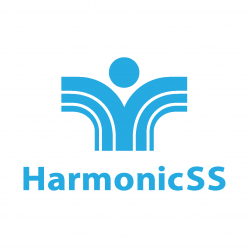HARMONIzation and integrative analysis of regional, national and international Cohorts on primary Sjögren’s Syndrome (pSS).
HarmonicSS officially started on 1st January 2017. The kick-off meeting took place at University of Athens premises in Athens on 12th and 13th January, 2017. The overall concept of the HarmonicSS project (http://harmonicss.eu/(opens in new window)) is to bring together the largest well-characterised regional, national and international longitudinal cohorts of patients with primary Sjögren’s Syndrome (pSS) including those participating in clinical trials, and by taking into consideration the ethical, legal, privacy and IPR issues for sharing data from different countries, to semantically interlink and harmonise them into an integrative pSS cohort structure on the cloud. Upon this harmonised cohort, open services for big data mining, governance and visual analytics will be integrated, to address the identified clinical and health policy pSS unmet needs. Moreover, tools for specific diagnostic procedures (e.g. ultrasonography image segmentation), patient selection for clinical trials and training will be also provided. The users of the HarmonicSS platform are researchers (basic/translational), clinicians, health policymakers and pharmaceutical companies. pSS is a chronic systemic autoimmune disease characterised by lymphocytic infiltration of exocrine glands and dry eye and mouth manifestations, systemic involvement and an increased risk of evolution into malignant lymphoma, which is the main disease complication. It affects primarily women (9 females / 1 male) after menopause. Although the cause of pSS is unknown, the disease develops under the influence of a combination of genetic, environmental and immune factors, as is the case with other autoimmune disorders. Importantly, pSS is relevant not only due to its clinical impact but also as one of the few “model” diseases to link autoimmunity, cancer development (lymphoproliferation) and the pathogenetic role of infection. Thus, the study of pSS can facilitate research in many areas of medicine; for this reason, the possibility for sustainability and expandability of the platform is enhanced. In addition, pSS has a significant impact on healthcare systems, similar to that of rheumatoid arthritis. The harmonisation, semantic interlinking and subsequent integration of pSS cohorts foreseen in the HarmonicSS project is highly achievable, based on already shared and internationally accepted classification criteria and measures of disease activity and damage. The objectives of the HarmonicSS project are: • To establish a unified and semantically enriched knowledge sustainable network of the major clinical and research groups working on pSS and a steering committee for coordination • To analyse the ethical, legal, privacy and IPR issues for integrating cohorts from different countries and patient selection for conducting international clinical trials • To achieve individual cohorts data quality and completeness through clinical preparatory actions according to the recent publications sponsored by the European League Against Rheumatism (EULAR) • To harmonise the individual cohorts and create the integrative cohort on pSS • To deliver the core ICT services infrastructure for clinicians, researchers and health policymakers • To address the research and clinical unmet needs in pSS • To develop the HarmonicSS tools for patient selection in clinical trials, segmentation of salivary gland ultrasonography and training of general practitioners • To deliver evidence and actionable insights for health policies in pSS and pilot application • To achieve sustainability, expandability and exploitation of the platform
Keywords
Countries
Greece



